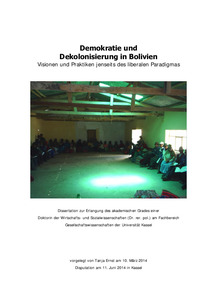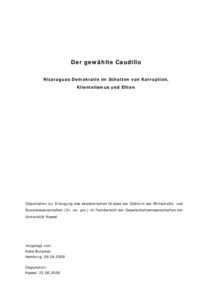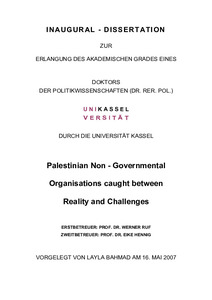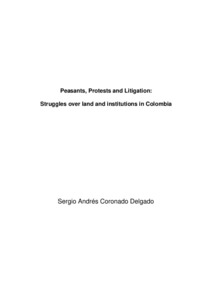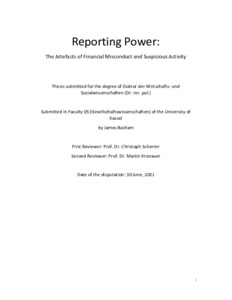Suche
Anzeige der Dokumente 1-5 von 5
Dissertation
 Demokratie und Dekolonisierung in Bolivien
Demokratie und Dekolonisierung in Bolivien
(2015-06-16)
Ausgehend von den fortdauernden Ausschlüssen und strukturellen Benachteiligungen der indigenen Bevölkerung Lateinamerikas kritisiert die vorliegende Arbeit die begrenzten Möglichkeiten gesellschaftlicher Teilhabe innerhalb von liberalen Wahldemokratien. Neben materiellen Ungleichheiten stehen immaterielle Formen der Ungleichheit, wie kulturelle und symbolische Barrieren politischer sowie sozialer Teilhabe im Fokus der Analyse. Das Forschungs- und Erkenntnisinteresse zielt darauf, Demokratie nicht länger nur anhand ...
Dissertation
 Der gewählte Caudillo
Der gewählte Caudillo
(2009-07-20)
Jedes Land besitzt eigentümliche Charakteristika, die aus der Geschichte, internen Faktoren, politischen Umwälzungsprozessen sowie externen Interventionen hervorgehen. Somit weisen Entwicklungs- und Demokratieprozesse jeweils länder- oder regionalspezifische Ausprägungen auf, die eine Übersetzung der allgemeinen Erfahrungen auf den Einzelfall erfordert. Um eine Einzelfallanalyse vornehmen zu können wurde für das Promotionsvorhaben Nicaragua herausgegriffen, welches in seiner jüngeren Geschichte gravierende soziale ...
Dissertation
 Palestinian Non-Governmental Organisations caught between Reality and Challenges
Palestinian Non-Governmental Organisations caught between Reality and Challenges
(2007-09-10)
Non-governmental Organisations (NGOs) have not only gained more and more relevance in the development process of Near Eastern developing societies, but they have also raised an increasing scholarly interest. The traditional civil society in the Middle East, which used to be in charge of the tribe or large families, has been altered by new groups, which are organized around new social structures, interests and goals. The number of NGOs has experienced a swift increase in number and size, and the extent of some renders ...
Dissertation
 Peasants, Protests and Litigation: Struggles over land and institutions in Colombia
Peasants, Protests and Litigation: Struggles over land and institutions in Colombia
(2022)
The past decade has observed a resurgence of peasant politics in Colombia. After the most intense period of armed conflict-related violence against the rural population (1985 – 2006), and amid the enforcement of the land restitution policy and the peace negotiation between the Colombian Government and the former FARC-EP guerrilla movement, the country observed a revival of social mobilization from the countryside. While the motives of this new cycle of peasant mobilization varied at different levels – from local to ...
Dissertation

 Reporting Power
Reporting Power
(2024)
An eclectic genealogy (Foucault, 1977) that reconstructs the previous understanding and emergence of a ‘taken for granted’ global practice: the practice of suspicious activity reporting. A governance practice whereby financial institutions worldwide document and report the conduct of consumers deemed suspicious. At the center of this practice is a material artefact, a multipage fillable form called the Suspicious Activity Report. Following Actor-Network Theory (Latour, 1987), the form also serves as the centerpiece ...

